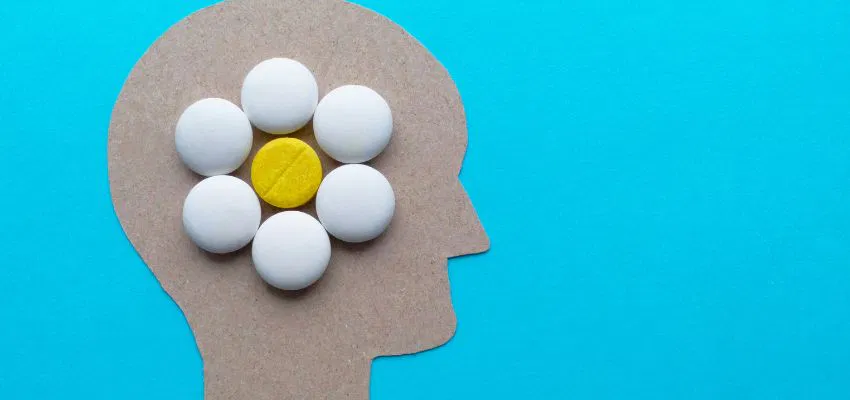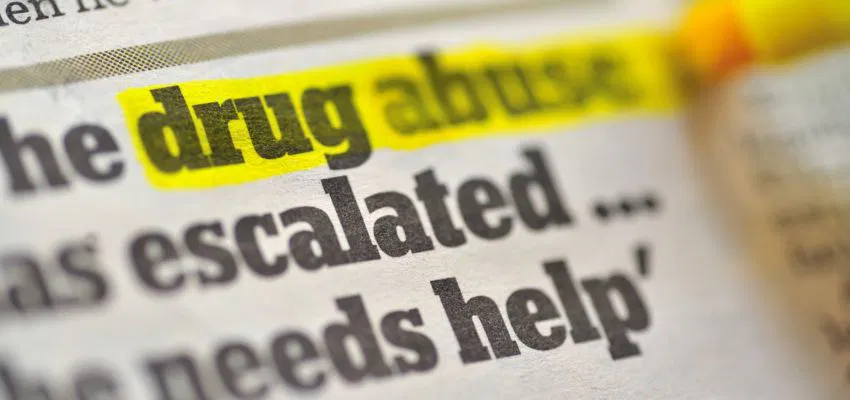How Does Drug Abuse Affect Society: The Saddening Truth

Published March 11, 2024
Drug abuse is a widespread issue with significant societal impacts. Misusing substances like prescription drugs, alcohol, and illicit drugs harms the individual. It also leads to addiction, health issues, strained relationships, money problems, and crime. Addressing drug abuse includes prevention, education, and treatment access.
As per the National Center for Health Statistics report, close to 92,000 individuals in the U.S. succumbed to drug overdoses. Presently, substance abuse disorder impacts over 20 million Americans aged 12 and above.
In this article, we’ll look deeper into how does drug abuse affect society and the devastating repercussions it inflicts on society. It sheds light on its multifaceted impact on individuals, families, and communities.

How Drugs Affect The Brain
Drugs significantly affect the brain, altering cognitive processes and behaviors. They can lead to health issues and, in severe cases, fatal consequences. Drugs disrupt normal brain functions. They change how nerve cells send and interpret information.
Drugs like amphetamines, alcohol, opioids, cocaine, and nicotine are addictive. They manipulate the brain’s reward system, causing pleasure and euphoria. Prolonged abuse can result in symptoms such as agitation, rapid speech, and increased vigilance.
The brain becomes dependent on these substances for the release of dopamine, leading to addiction. Substance misuse causes a surge of dopamine. It rewires the brain and causes withdrawal when drug use stops. All drugs, such as methamphetamine, cocaine, and pain relievers, affect three key brain regions. This causes lasting changes in brain structure and function.
Drug abuse disrupts normal brain operations. It reshapes brain structure and disturbs its chemical balance. This leads to dependency, addiction, and health issues. Understanding these effects is crucial for effective drug abuse prevention and treatment.
Danger Of Drug Abuse
Drug abuse poses significant physical and mental risks. Misusing illicit drugs can cause immediate and long-term health problems, ranging from minor discomforts to severe conditions like heart disease and liver damage. Different drugs have distinct effects. Opioids slow breathing, while cocaine may cause seizures.
On a psychological level, substance misuse contributes to anxiety, depression, and schizophrenia. It impedes recovery efforts and perpetuates addiction. Socially, drug abuse can lead to academic, financial, and interpersonal challenges. Sadly, it increases the chances of legal entanglements. The risk of a fatal overdose is incredibly high with drug abuse, especially when combined with other substances.
It’s imperative to recognize the dangers of drug abuse for prevention. Education and awareness play pivotal roles in addressing this issue.
Potential Entry Points For Drug Abuse
Drug abuse can have diverse entry points influenced by social and environmental factors:
- Family history. Individuals with a family history of drug abuse face a higher risk of addiction. Those diagnosed with mental disorders, like depression or anxiety, are more likely to have substance use disorder.
- Peer pressure. Peer pressure is incredibly impactful during adolescent years. It plays a significant role in starting drug use.
- Lack of education and awareness. Insufficient knowledge about drug risks increases vulnerability to substance abuse.
- Self-medication. Some turn to drugs for self-medication against physical or psychological pain.
- Environmental factors. Living where drug use is prevalent raises the risk of substance misuse.
- Access to substances. Easy access to substances can serve as a gateway to drug abuse.
- High-risk behaviors. Involvement in risky behaviors includes using high-risk drugs like heroin, opioids, and meth. This can lead to substance misuse.
- Lack of school support. Schools lack education and support for preventing drug abuse. This may unintentionally encourage drug abuse.
Effects Of Drug Abuse On Relationships
Drug addiction can hurt relationships. It harms not only the drug user but also their loved ones. Here are various ways in which drug addiction can affect relationships:
- Loss of trust. Drug abuse often leads to secretive behavior. It erodes trust within relationships. This may involve deceit about drug use or theft to support the habit.
- Emotional distance. Substance abuse can cause emotional withdrawal. It creates a barrier between people in a relationship. The person using drugs may exhibit emotional detachment, unresponsiveness, or instability.
- Conflict and violence. Addiction can escalate conflict and potentially lead to violence in relationships. Disagreements regarding drug use or associated behaviors may spiral into physical altercations.
- Financial strain. Drug abuse can impose significant financial stress. Funds might be diverted toward acquiring drugs instead of fulfilling essential household needs. Sadly, it leads to financial disputes.
- Neglect of responsibilities. Those with addiction may neglect their duties. This includes caregiving and work commitments. Doing so adds pressure on their partners or family members.

What Are The Effects Of Drug Abuse On The Community?
Drug abuse has profound implications for communities. It impacts safety, social services, and overall quality of life. Here are several ways in which drug abuse affects communities:
- Increased crime. Substance abuse is often linked to violent and income-generating crimes. It instills fear among residents and escalates demand for correctional systems.
- Strain on social services. Communities grappling with high drug abuse rates experience pressure on social services, including healthcare and law enforcement. It leads to a strain on resources and limits availability for other community needs.
- Family disruption. Children in families affected by drug abuse may lack proper care. They may also lack medical attention and emotional stability. Sadly, it leads to long-term societal challenges as they navigate adulthood.
- Decreased quality of life. Communities with high drug abuse rates often face diminished quality of life. It manifests through increased crime and restricted access to public services.
How Does Substance Abuse Affect Society?
How does drug abuse affect society? It has far-reaching effects on society. It can affect diverse areas ranging from public health to the economy. Here’s a comprehensive look at how drug abuse impacts society, drawing insights from various sources:
- Public health. Drug abuse often causes many health problems. These include the spread of infectious diseases, overdoses, and other medical complications. Sadly, it strains the healthcare system.
- Economic impact. Substance abuse can reduce workplace productivity. It can also raise healthcare and addiction treatment costs. It results in a substantial economic burden.
- Criminal justice system. Drug-related offenses, whether violent or financially driven, instill fear among communities. They require juvenile and adult jails.
- Family and child welfare. Children with drug-abusing parents or relatives often encounter neglect or mistreatment. They might lack proper medical attention and even develop their addiction at a young age.
- Community impact. Drug abuse harms communities. It leads to higher crime, less safety, and strained social services.
- Environmental consequences. The manufacturing and disposal of drugs frequently result in environmental harm. It directly impacts wildlife and water quality and contributes to pollution.
The results of drug abuse affect more than the users. It involves many facets of society and perpetuates a cycle of harm that proves challenging to break. Nonetheless, by implementing effective prevention measures
Frequently Asked Questions About The Effects Of Drug Abuse On The Society
What are the physical and mental effects?
The consequences of drug abuse are wide. Physically, it can result in heart disease, stroke, cancer, HIV/AIDS, hepatitis, and lung disease. It can cause paranoia and aggression. It can also cause hallucinations and lousy judgment. Eventually, it leads to loss of self-control. Moreover, addiction can evoke feelings of hopelessness, loneliness, fear, guilt, and shame.
How does drug abuse contribute to crime rates?
Substance abuse is frequently linked to violent and income-generating crimes. Communities are grappling with more drug charges. This causes pressure on police and a surge in demand for jails.
Can you describe how drug abuse affects society and the consequences of drug abuse in America?
Drug abuse has many effects on society. It causes more crime. It strains healthcare and social services and harms community well-being. The economic toll of drug abuse is profound. It includes direct costs for healthcare and addiction treatment. It also has indirect effects like lower productivity and higher crime rates.

Confronting The Impact Of Drug Abuse On Society
Drug abuse’s impact ripples through society, weaving a complex web with dire consequences. Understanding how does substance abuse affect society underscores the need for collective action. Improving preventive measures is vital. So is expanding treatment access and supporting recovery. These steps are crucial to fighting the destructive effects of drug abuse on society. Let’s come together, nurturing empathy, comprehension, and proactive measures for a healthier society.
Advertisement
Save 90% Per Minute On Jail Calls With Us
US prisons charge lots of money per minute for long distance inmate calls. The loved ones of inmates are left to pay this bill. For a ten minute phone call you may find yourself paying over one hundred dollars. With SecurTel, you can reduce this charge to a fraction of the cost and only pay the local calling rate. Make calls from across the US or internationally for the local rate and help your family stay connected during a difficult time. Learn more about how to sign up for inmate calls here.

This Content Is Fact Checked
We have conducted thorough fact-checking on this content in-house. Get detailed insights into our website’s editorial standards by clicking here.

About The Author
Hello! I’m Corinne, a nursing graduate from Riverside College with a flair for writing. Thanks to the thorough research into each piece, my work stands out for its quality and accuracy. I believe in the power of storytelling to connect with people from all walks of life.



